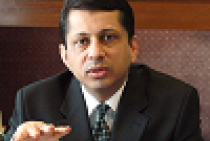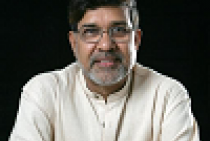Over the last few weeks there has been ample amounts of negative media attention given to Mate Ma'a Tonga fans. I in no way support fans fighting or being aggressive and it is worrying. However, what I am most concerned about is the amount of negative articles that have been circulated by some media outlets. The constant reporting of a few incidents where a minority group of fans were fighting has dominated the media and has painted all Mate Ma'a Tonga fans as being out of control. - Jean Allen
You are here
Results for Opinion
Thursday 9 November 2017
Nuku'alofa, Tonga
Wednesday 8 November 2017
Geneva, Switzerland
Solutions to the climate crisis are often associated with big conferences, and the next two weeks will no doubt bring many “answers.” Some 20,000 delegates have now descended on Bonn, Germany, for the latest round of United Nations climate change talks. The talks in Bonn should focus on the implementation of the Paris climate agreement. And the path forward is clear. By Nathalie Bernasconi-Osterwalder and Jörg Haas.
Wednesday 1 November 2017
Geneva, Switzerland
Perhaps the most enduring lesson of Luther’s call for a scholarly debate – and his use of technology to deliver his views – is that it failed. Instead of a series of public discussions about the Church’s evolving authority, the Protestant Reformation became a bitter battle played out via mass communication .... The question today is how we can ensure that new technologies support constructive debate. The world remains full of heresies that threaten our identities and cherished institutions; the difficulty is to view them not as ideas that must be violently suppressed, but as opportunities to understand where and how current institutions are excluding people or failing to deliver promised benefits. By Nicholas Davis.
Sunday 29 October 2017
 Premium content
Premium content
Nuku'alofa, Tonga
The outcome of Tonga's November 16 General Election could be a game changer for the slow-moving democratic parliamentary reform that was begun in 2010. Editor's Comment by Pesi Fonua
Sunday 29 October 2017
New York, USA
For the last 40 years, China has implemented a national strategy that, despite its many twists and turns, has produced the economic and political juggernaut we see today. It would be reckless to assume, as many still do in the US, Europe, and elsewhere, that China’s transition to global preeminence will somehow simply implode, under the weight of the political and economic contradictions they believe to be inherent to the Chinese model. ...When China does become the world’s largest economy over the next decade, the current rule-based international order will not remain immune from this fundamental geo-economic and geopolitical change....To believe otherwise is willfully to ignore the deep changes that are now afoot. By Kevin Rudd
Tuesday 24 October 2017
 Premium content
Premium content
Manila, Philippines
The Earth today is more than 1°C hotter than it was in pre-industrial times, and the terrible symptoms of its fever are already showing. This year alone, back-to-back hurricanes have devastated Caribbean islands, monsoon flooding has displaced tens of millions in South Asia, and fires have raged on nearly every continent. Pulling the planet back from the brink could not be more urgent. Those of us who live on the front lines of climate change – on archipelagos, small islands, coastal lowlands, and rapidly desertifying plains – can’t afford to wait and see what another degree of warming will bring. By Loren Legarda
Monday 16 October 2017
Nuku'alofa, Tonga
With Tonga only weeks away from a snap General Election, the Tonga government is taking full control of the Tonga Broadcasting Commission, in a move that has annihilated its right to function as an honest Public Broadcaster. Its two most senior journalists have been ordered out of the newsroom and into a corner. By Pesi Fonua
Friday 6 October 2017
Reykjavik, Iceland
Just as some of us live longer than others, countries have different average life expectancies. At the bottom of the scale is Swaziland, the only country in the world where a newborn still cannot expect to reach age 50. And at the top is Hong Kong, where a newborn can expect to live to age 84...But life expectancy can also vary significantly within countries, between rich and poor...Moreover, this gap widened over time.
Wednesday 4 October 2017
London, United Kingdom
This weekend, Stephen Paddock opened fire on a country music festival in Las Vegas, Nevada, from an overlooking hotel, killing at least 59 people and injuring more than 500 others. Paddock, a 64-year-old former accountant with no criminal record, was ultimately found in his hotel room, dead, with some 23 guns, including more than ten assault weapons. Police later found an additional 19 firearms, explosives, and several thousands of rounds of ammunition in Paddock’s home. What the authorities have not yet found, however, is a motive.
Thursday 21 September 2017
Cambridge-MA, USA
Last week, in a brazen rebuff to tough new United Nations sanctions, North Korean leader Kim Jong-un’s regime fired a ballistic missile over the northern Japanese island of Hokkaido – its second launch over Japan in less than three weeks. But, far from indicating that sanctions don’t work, Kim’s move shows that they still aren’t tough enough. ... it is the time to do whatever is needed to defuse nuclear tensions and protect the lives of those in the Kim regime’s crosshairs.
Sunday 17 September 2017
1 comment
Dhaka, Bangladesh
Myanmar is in crisis. The Rohingya – a Muslim ethnic minority group in a predominantly Buddhist country – are under attack by the military, with many fleeing for their lives. This escalating conflict is threatening to undermine Myanmar’s ongoing democratic transition – and to tarnish irrevocably the reputation of the country’s de facto leader, Daw Aung San Suu Kyi. By Syed Munir Khasru.
Thursday 14 September 2017
New York, USA
“Leadership,” in this case, doesn’t necessarily mean an individual positioned at the top of a government or business hierarchy. Rather, it is defined by actions aimed at improving a community’s wellbeing, and it can come from anyone. We have seen firsthand how the presence of a diverse set of engaged leaders at all levels – educators, parents, students, policymakers, advocates, and others – can make or break efforts by a community or country to maximize opportunities to improve its education system. By Wendy Kopp and Dzingai Mutumbuka
Saturday 9 September 2017
New Delhi, India
With every new crisis that the world faces, humanity’s differences appear increasingly intractable. Religion, ethnicity, history, politics, and economics have all become tools to denigrate and demean. People seem to be drifting apart, and no country is immune from divisive discourse. But there is one fundamental issue where contrasts dissolve into consensus: the desire to keep children safe. By Kailash Satyarthi.
Tuesday 5 September 2017
Cambridge, USA
The United States and China have reached a precarious moment in their relationship. Ensuring a peaceful outcome will be the greatest geopolitical challenge of the twenty-first century. Are our leaders up to it? By Graham Allison and Arianna Huffington.
Sunday 3 September 2017
Sene, 'Aositelelia
Fakamalo atu ki he ‘Ateni Seniale he fakamahino ki he tukunga ‘o e tu’utu’uni kuo hifo mei he’ene ‘Afio fekau’aki mo e Palemia, mo e kau Minisita ‘o e Kapineti pea pehe ki he Pule’anga fakakatoa.
Sunday 3 September 2017
 Premium content
Premium content
Nuku'alofa, Tonga
The dissolution of the Tongan Parliament by HM King Tupou VI on August 24 is a wake up call for Tongans to return their focus to Tonga's modern democratisation process. Since a move to speed up the democratic reform process was initiated in 2010, social and political progress has faltered in an increasingly unsettled and disruptive political environment. By Pesi Fonua
Wednesday 16 August 2017
Santa Monica, USA
As global temperatures rise and droughts become more common, political agitation, social unrest, and even violence will likely follow. Scientists agree that climate change poses a grave danger to the planet. But for some reason, politicians and government officials have not connected the dots between a changing climate and human conflicts. Among the many threats associated with climate change, deteriorating global security may be the most frightening of all. It is bad enough to see farmers carrying skulls through the streets of India. But if we do not get serious about climate-driven security risks, we could see far worse. By Gulrez Shah Azhar
Tuesday 15 August 2017
Cambridge-MA, USA
As North Korean dictator Kim Jong-un and US President Donald Trump’s war of words escalates, Independence Day celebrations – commemorating the Korean Peninsula’s 1945 liberation from Japanese colonial rule – are unfolding in both North and South Korea. The occasion underscores not just the shared history between the two countries, but also the South’s unique qualifications to bring about a peaceful resolution to the current military standoff. ...With saber-rattling between North Korea and the US at an all-time high, the [US-South Korea UFG] military exercise – which will begin on August 21 – could escalate the conflict dramatically. By Katharine H.S. Moon.
Wednesday 9 August 2017
Istanbul, Turkey
Over the next few months, the 12,000 employees based at Apple’s headquarters in Cupertino, California will complete their move to an extravagant new campus. The “spaceship,” covering 2.8 million square feet, includes a two-story yoga studio, running paths, and even revolutionary pizza boxes that keep slices crisp. One thing it does not have, however, is daycare. By Bharati Sadasivam
Monday 7 August 2017
Milan, Italy
National and international institutional frameworks must continue to guard against destructive actions by political leaders. In the final analysis, confidence in these institutions’ resilience – and in an eventual end to the current political dysfunction – is what markets seem to be banking on. by Michael Spence.




















